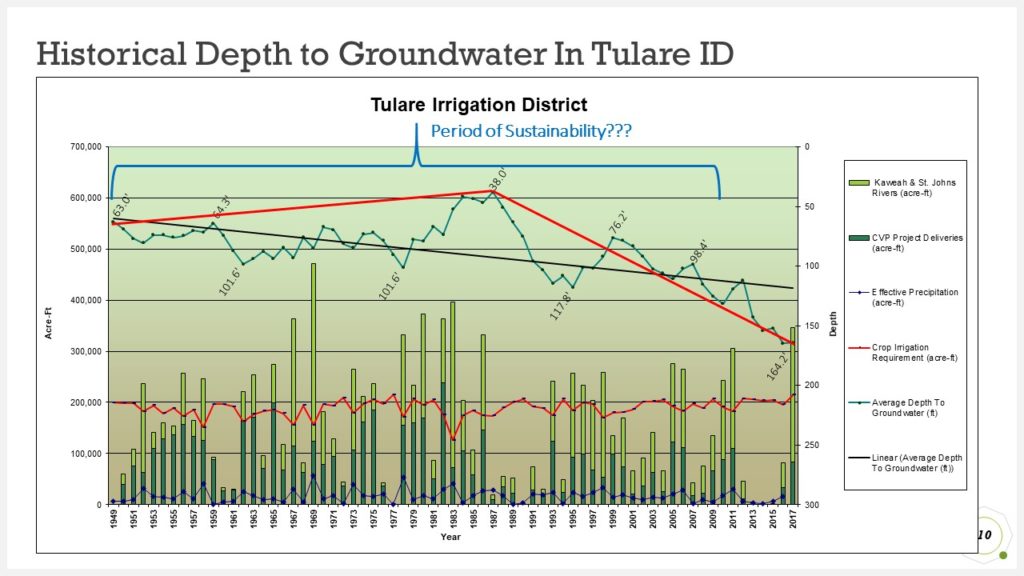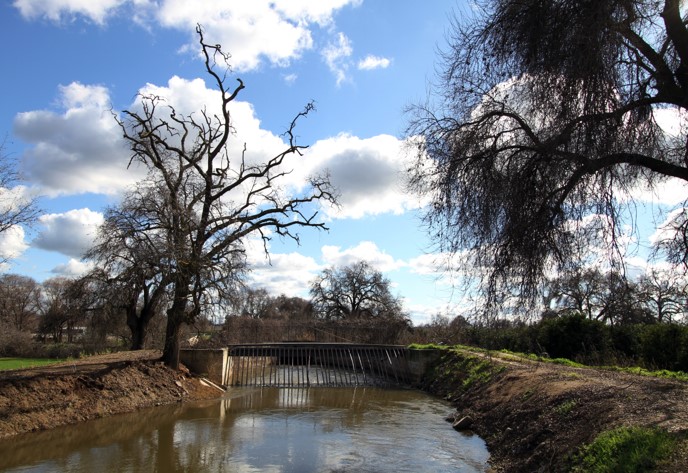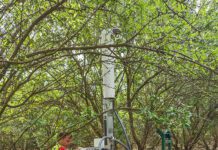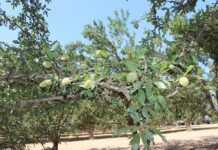Aaron Fukada, general manager of Tulare Irrigation District (TID) provided some historical perspective to groundwater pumping and overdraft as well as current status of local groundwater sustainability agencies at the Almond Day event in Fresno.
Overdrafting of groundwater began in the 1920s, Fukada said and the answer was to drill deeper wells. During the 1940s, the Central Valley Project and State Water Project were developed to overcome the overdraft situation. Local efforts included groundwater recharge basins. Extended drought periods in the last decade and continued overdraft led to the Sustainable Groundwater Management Act (SGMA) legislation that seeks to balance recharge of groundwater basins with groundwater pumping.
SGMA requires overdraft of high and medium priority groundwater basins be halted and local agencies formed to manage basins in a sustainable manner. The local agencies are empowered to measure extractions, conduct studies, manage extractions and assess fees to achieve sustainability.
 The State Water Resources Control Board is the ‘backstop” if local agencies fail to develop a plan that meets the requirements of the Department of Water Resources (DWR).
The State Water Resources Control Board is the ‘backstop” if local agencies fail to develop a plan that meets the requirements of the Department of Water Resources (DWR).

Fukada said the Tulare Irrigation District estimates the state’s intervention fees at $240,000 for 800 wells at $300 each; probationary rate: 125,000 acre feet at $40 would be $5 million and an interim plan for 125,000 acre feet at $55 would be $6.875 million.
The groundwater sustainability planning process is iterative, Fukada said, which allows groundwater sustainability agencies (GSAs) to adaptively manage towards sustainability. Initial GSP due next year may not be the full achievement of groundwater sustainability, but a step towards that goal.
All plans submitted to DWR will not be equal or alike, he noted.
TID’s solutions to move toward sustainability include recharge basins, on-farm recharge, surface water storage projects and groundwater markets. Currently, there are 230 acres of recharge basins in the district and on-farm recharge efforts are increasing. Groundwater markets would allow for the marketing of credits for the ability to forego groundwater pumping.











